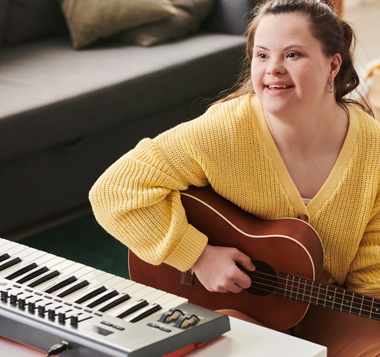Developing social skills is crucial for everyone, but it can be particularly important and challenging for children and adults with disabilities. These skills help individuals navigate everyday interactions, build relationships, and foster independence. For those supported under the National Disability Insurance Scheme (NDIS), there are tailored approaches and resources available to make this journey smoother. Below, we explore practical strategies to enhance social skills and how NDIS providers in Sydney, like ACALS, play a pivotal role in empowering individuals.
Why Are Social Skills Important?
Social skills are the foundation of effective communication, self-confidence, and emotional well-being. For individuals with disabilities, improving these skills leads to:
- Better personal relationships: Building meaningful connections with family, friends, and peers.
- Improved independence: Navigating social situations, such as attending school, work, or community events.
- Enhanced emotional regulation: Managing feelings and understanding the emotions of others.
Common Challenges in Developing Social Skills
Children and adults with disabilities may face unique hurdles, including:
- Difficulty in interpreting non-verbal cues, like facial expressions or body language.
- Limited opportunities to practice social interactions in a safe environment.
- Anxiety or discomfort in group settings.
Strategies to Improve Social Skills
1. Encourage Participation in Day Centre Activities
Structured environments, such as Day Centre Activities, provide excellent opportunities for individuals to practice social interactions in a supportive setting. These activities often include group games, arts and crafts, and collaborative tasks, helping participants develop communication and teamwork skills.
Benefits of Day Centre Activities
- Safe and inclusive spaces for social interaction.
- Opportunities to make friends and build relationships.
- Guided activities designed to promote teamwork and cooperation.
2. Implement Role-Playing and Social Stories
Role-playing is a powerful technique for teaching social skills, allowing individuals to practice real-life scenarios in a controlled environment. Social stories are another effective tool, providing step-by-step visual and written narratives that guide individuals on how to handle specific situations, such as:
- Introducing oneself to new people.
- Taking turns in a conversation.
- Handling disagreements politely.
3. Leverage Speech and Occupational Therapy
For individuals who struggle with communication, speech and occupational therapy can provide targeted support. Therapists work on improving verbal and non-verbal communication skills, fine motor skills for non-verbal gestures, and techniques to reduce anxiety in social situations.
4. Encourage Participation in Community Events
Community engagement fosters a sense of belonging and provides natural opportunities to interact with others. Encourage participation in local events or clubs that align with the individual’s interests. Organizations like ACALS can provide support in accessing these opportunities under the NDIS.
5. Foster Family and Peer Support
Family and peers play a vital role in enhancing social skills. Encouraging families to actively participate in activities or therapy sessions helps create consistency between formal training and everyday life. Additionally, spending time with peers in group settings builds confidence and reduces feelings of isolation.
The Role of NDIS Providers in Sydney
Customized Support Plans
Under the NDIS, individuals receive tailored support plans based on their unique needs and goals. Providers like ACALS specialize in designing strategies to improve social skills, ensuring participants achieve their full potential.
Services Offered by ACALS
- Access to structured day programs for skill-building.
- Guidance from trained professionals in group and one-on-one settings.
- Assistance in creating social opportunities, such as attending community events.
Building Confidence Through Consistent Support
NDIS providers in Sydney offer consistency and structure, which are key to building confidence in social interactions. By working closely with families and individuals, they ensure progress in a supportive and understanding environment.
You may also like: What Are the Benefits of NDIS?
Take the Next Step
Improving social skills for children and adults with disabilities is not just about enhancing communication—it’s about building confidence, fostering independence, and enriching lives. Through structured activities, community engagement, and professional support, individuals can overcome challenges and thrive.
If you’re ready to empower yourself or a loved one, ACALS offers expert guidance and personalized support. Take the first step toward a brighter future today.



